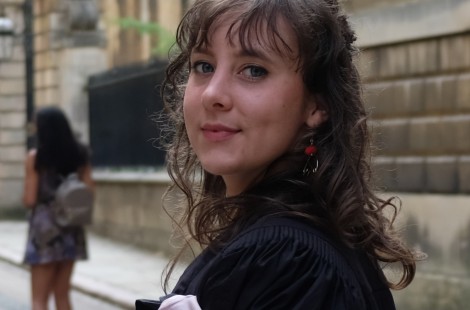
I remember listening to a talk about Imposter Syndrome in my first week as a Natural Scientist at Cambridge. I nodded my head and eagerly made a few notes in typical fresher fashion. As soon as I stepped out of the lecture theatre, however, I was whisked away: beginning the endless cycle of supervisions, socials, and (least of all) sleep.
Like countless others - particularly those who don’t quite fit the stereotypical image of a Physicist - Imposter Syndrome would come back to plague me. As I prepare for a PhD in Theoretical Biophysics starting this September, I reflect on the impact of Imposter Syndrome throughout my study.
Arriving at Cambridge, I was met with the almost-universal shock that I was no longer an effortless over-achiever. I had come anticipating an academic challenge, but I was unprepared for the competitive and comparative aspects I found within my course. I completed first year full of exciting new knowledge from special relativity to the French Flag Model. However, my interest in science began to be drowned by anxiety about grades. Second year didn’t seem like an opportunity to learn more interesting concepts; to me, it seemed to bring only opportunities for knocking my confidence.
In Natural Sciences, second year is a chance to specialise. I was most interested in physics, however, I was convinced this conflicted with my academic ability. The culture of Cambridge and rumours about the Physics department being a hostile environment fed into my narrative. I fretted until the day of the deadline. It was the support of my Director of Studies that enabled me to take the risk and follow my interest to study Physics. I think of this day as a monumental moment where I almost let my self-doubt stop me from following my Physics dreams!
This moment helped me realise how much low self-confidence and the Imposter Syndrome was holding me back. I was scared to ask my peers for help with Physics questions, in case they thought it was easy, and would pass judgement on me. I spent so much time worrying that I didn’t have any energy to feel any interest in the subject. I was constantly seeking reassurance, and preparing scapegoats for my inevitable failure. It was exhausting - and while I felt I must be all alone, I have no doubt that there were - and are - many students who felt the same.
This realisation - with the help of my support network - led me to change. I began to put effort into increasing my self-confidence. Being honest with my peers about how I felt, talking to counsellors about these feelings, and investing time into hobbies that made me happy all helped.
Slowly, but surely, I realised things about myself and how I liked to work. I went from being scared to ask anyone about supervision work for fear it would make me feel insecure, to initiating group discussions because I realised that’s how I learnt best. I was able to admit mistakes freely without feeling like they defined my character. I became an advocate for myself, and asked for help when I needed it.
Fourth year came, and I happily specialised in biophysics, the field that had always drawn me. My post-degree plan was an opportunity to reflect on how much Imposter Syndrome would factor into my decision. Part of this process was my decision to take a year out, to escape the pressure. This time helped me reflect on my options, without letting the stress or self-doubt force a decision that might not be right for me. I made a decision to apply for PhDs, and will be studying the physics of evolution at the Crick Institute come September. I aim to enter academia again without the weight of Imposter Syndrome!
Hindsight is a wonderful thing: had I simply had a bit more confidence, or chilled out just a little, my time at Cambridge would have been far less stressful. Though this message came to me from various sources while I was studying, it is a change that takes energy and time - and one I have only really enacted since I’ve graduated.
The high-intensity environment pushed me to learn and explore. I have a question for Cambridge scientists who might be struggling with Imposter Syndrome: is lack of self-confidence or fear of failure a deciding factor in your academic decisions? A great first step is acknowledging this - the next is talking about it to people in your support network. Be kind to yourself - and although I’m sure this reassurance won’t mean much, you’re probably doing a lot better than you think!
Amy Bowen
Murray Edwards Alumna